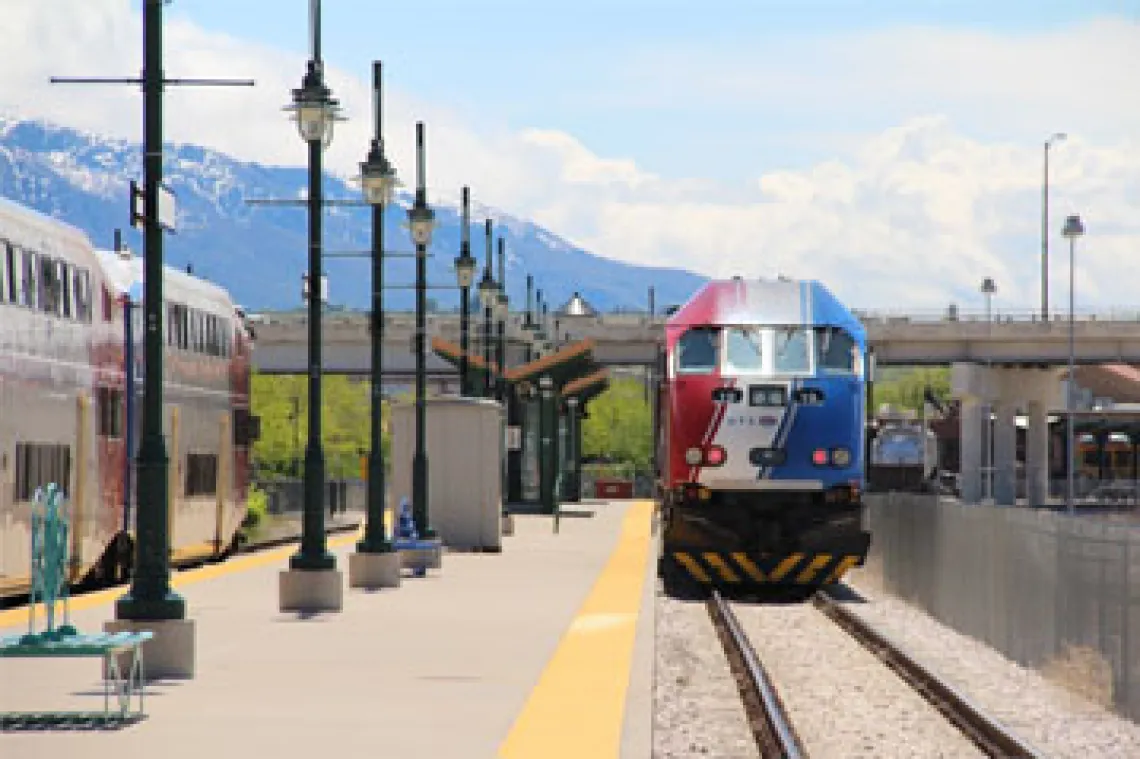2019 Transportation Research
NITC supports faculty-led research at its member campuses through a competitive peer-review process, and many of these grants help fund CAPLA students through Graduate Research Assistantships.

The University of Arizona is part of the National Institute for Transportation and Communities (NITC), one of five National University Transportation Centers funded by the United States Department of Transportation. NITC is a network transportation researchers and educators from Portland State University, University of Utah, University of Oregon, Oregon Institute of Technology, and University of Texas Arlington.
The following research grants have been awarded to CAPLA faculty:
E-Scooters and Public Health: Understanding the Implications of E-Scooters on Chronic Disease
This project will inform longer-term decisions about E-Scooter status in the City of Tucson and provide a template for incorporating the co-benefit of chronic disease into other public decisions nationwide.
Principal investigator: Nicole Iroz-Elardo, University of Arizona
Scooting to a New Era in Active Transportation: Examining the Use and Safety of E-Scooters
This study leverages on-going work at the University of Utah focusing on safety implications of e-scooters and an on-going collaboration between the University of Arizona and the City of Tucson to monitor a six-month pilot of e-scooters in the Tucson, Arizona area.
Principal Investigator: Kristina Currans, University of Arizona
Co-investigators: Nicole Iroz-Elardo, University of Arizona; Reid Ewing, University of Utah
The Connection between Investments in Bus Stops, Ridership, and ADA Accessibility
Bus stop amenities, including shelters, seating, signage, and accessibility features make waiting for transit more comfortable for all riders, especially in cases of inclement weather or extreme climate. For persons with disabilities, such features can provide a critical link for accessing regular, scheduled bus services. But do programs to construct such improvements result in measurable changes in ridership demand and behavior?
Principal Investigator: Keith Bartholomew, University of Utah
Co-investigator: Arlie Adkins, University of Arizona, Tucson
Access to Opportunities: Redefining Planning Methods and Measures for Disadvantaged Populations
An interdisciplinary team of planning and public health researchers from UA will investigate how standard measures and conceptions of walkability hold up across socio-economic contexts. The aim of this study is to produce actionable recommendations about how concepts like walkability should be defined, measured, and applied in disadvantaged neighborhoods.
Principal Investigator: Arlie Adkins, University of Arizona
Co-investigator: Stephen Mattingly, University of Texas, Arlington
Is Transit-Oriented Development Affordable for Low and Moderate Income Households (in terms of H+T)?
The transportation and land use planning paradigm is shifting away from segregated uses connected by highways and roads to more compact, mixed-use developments connected by high quality transit. This new paradigm has brought transit-oriented development (TOD) to the fore, and researchers continue to highlight advantages of this style of well-integrated land use and transportation planning. When it comes to affordability, what counts isn’t housing costs alone but the combination of housing plus transportation costs (H+T).
Principal Investigator: Reid Ewing, University of Utah
Co-investigators: Nicole Iroz-Elardo and Arlie Adkins, University of Arizona
LRT/BRT/SCT/CRT Development Outcomes FINAL PHASE
This research compares development, demographic and housing outcomes associated with select municipal transit systems around the country (light rail, bus rapid transit, streetcar, and commuter rail) during the period before the Great Recession (2000 through 2007) and during recession into recovery (2008 through 2011).
Principal Investigator: Arthur C. Nelson, University of Arizona
Co-investigators: Kristina Currans and Nicole Iroz-Elardo, University of Arizona



